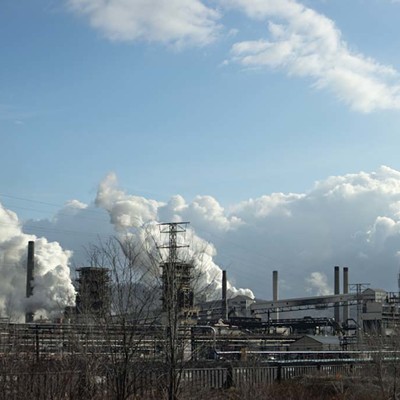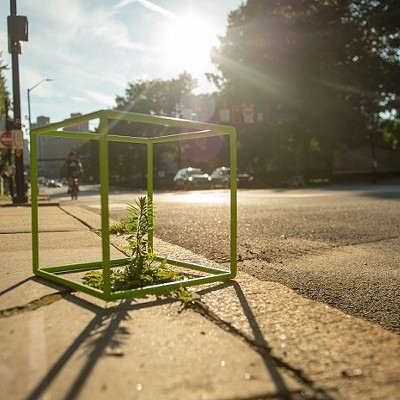It's easy enough to mock preppers. These are the apparently numerous folks who, as depicted on National Geographic Channel's series Doomsday Preppers, stockpile food and weapons and craft elaborate plans to "bug out" — head for the hills — in case of emergencies like natural disaster, power-grid failure or even complete societal collapse. Preppers can seem like paranoid gun nuts who are actually kind of eager for things to go wrong.
By contrast, consider the international Transition Town movement, which encourages communities to plan how they'll thrive in a world destabilized by climate change and dwindling supplies of oil.
Transition, born in England, is about building consensus among neighbors to realize a vision of a relocalized, environmentally sustainable world without fossil fuels; it's about responding to perceived scarcity by building a society we'd actually prefer to live in. Prepping, meanwhile, largely involves individual households or small groups overcoming disasters — while expecting everyone else to be unprepared, perhaps even hostile.
Citing overseas precedents, preppers hark to Argentina's disastrous 2001 debt crisis. Transitioners hopefully recall how, after the Soviet Union collapsed, Cubans learned how to feed themselves with urban agriculture. As a lifestyle focus, Transitioning versus prepping can seem the difference between living a dream and surviving a nightmare.
All that might explain why most preppers are enthusiastically armed, while Transition materials scarcely mention weaponry.
Some Transitioners fear that, whether it's derided or admired, prepping will become society's default model for coping. If prepping triumphs, "We will rely more on beans, bunkers and bullets," says Mark Dixon. "I'd like to live in an America where you rely on your neighbors, your garden and your knowledge."
Nonetheless, local preppers and Transitioners say the distance between them is overstated. Dixon, a filmmaker and environmentalist, co-founded Transition Pittsburgh, but notes that both groups emphasize practical skills like gardening, and favor localized problem-solving. Both cite society's ignorance of its utter dependence on cheap fossil fuels.
In Pittsburgh, meetup.com lists 430 Transitioners and 157 preppers. "If you can link those two movements, you can have a very powerful populist movement," Dixon says.
Josh Wander also sees overlaps. Wander, 42, once served in the Israeli military; he now runs the website www.jewishprepper.com and hosts the PCTV show The Prepper Report. He's a doctoral student at Pitt (in public policy and administration) who lives in Squirrel Hill with his wife, six children, "food for months" and guns. Last year, Wander was featured on Doomsday Preppers. "As preppers, we're not happy with that show," he notes. "It makes us look a little loony and wacko."
Meanwhile, Wander's Prepper Report has explored such Transition-friendly, self-sufficient activities as urban gardening, beekeeping and backyard chicken-raising. And Wander says that preppers like him, far from loners, are quite civic-minded. "We are creating a community through education of disaster preparedness," says Wander, who last year ran for Pittsburgh City Council. "That's an essential element of disaster preparedness, getting everybody on board."
Yet big differences remain between Transitioners and preppers. Climate change, central to Transition planning, does not concern most preppers, who seem more worried about personal sustainability than the environmental kind. They're happy to keep burning oil.
The biggest divide, however, might be over simply defining "community." Transitioners view decision-making as consensus-building, and resources as for sharing, as with community solar arrays. For preppers, the best community is one where everybody takes care of himself. "If there is some sort of catastrophic disaster that affects us, if I'm the only one on the block that has the goods, they're going to be coming to me for it," says Wander.
Then there's the bug-out. If things get really bad, as Wander put it on Doomsday Preppers, "You have to get out of this urban death-trap." And contrasting with consensus-minded Transitioners, preppers hew to op sec — operational security. "We're a little more secretive because no one wants their stuff stolen," says Dave Powell, another local prepper.
Perhaps preppers (who tend to be conservatives and libertarians) and Transitioners (typically lefties) simply express two distinct views of human nature. Dixon, for one, believes going solo only gets you so far. "What happens when you run out of ammo? The answer is, you better have worked on your Transition Town."














